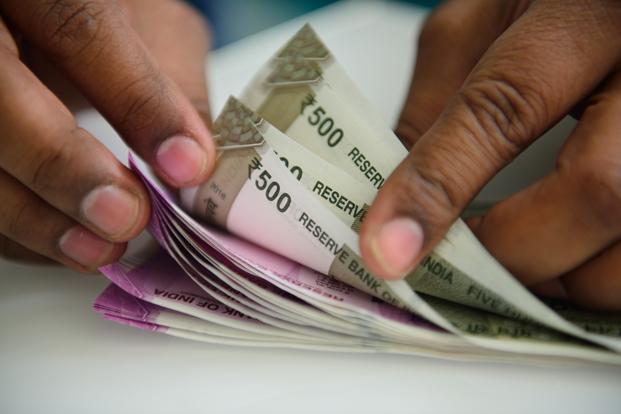Restriction on Cash Transactions under Income Tax Act (Section 269ST) – Cash Transaction Rules from 1st April 2017, FAQ on Cash Receipt of Rs.2 Lakh or More w.e.f 01.04.2017 (Section 269ST).CBDT Takes Steps to discourage Cash transactions and curb Black Money. These prominently include placing restriction on cash transactions by introduction of new sections 269ST and 271DA to the Income-tax Act. In order to promote digital payments in case of small unorganized businesses, the rate of presumptive taxation has been reduced from 8% to 6% for the amount of turnover realised through cheque/digital mode. check more details for Cash withdrawal and transaction rules 2017.
In a bid to curb black money as well as to limit the number and amount of cash transactions, the government has come out with some new provisions and related rules and prohibited some types of cash payments in the Finance Acts. The effects of restrictions under provisions of income tax act are as follows.
- Restrict cash transactions which results disallowances of expenses or deduction under chapter VIA of income tax act in computation of taxable income and allowing deduction to incentivise better compliance.
- Penalising cash transactions above threshold limits to create effective deterrence.
Important Cash Transaction Provisions wef 01/04/2017
- Any donation above Rs. 2,000/- in cash will not be eligible for tax deduction under Sec 80G of the income tax act. Earlier this limit was of Rs. 20,000/-.
- Any expense of above Rs. 10,000/- done in cash will be disallowed. Earlier, this limit was of Rs. 20,000/-.
- From 1st April onwards, Cash payments of above Rs. 10,000/- done for purchase of capital asset will be disallowed. I.e. they cannot be added in the cost of asset for Income Tax purposes hence, depreciation cannot be claimed on same for Lorry cash payment limit is Rs.35000.
- Nobody can receive an amount more than Rs.2 Lakh or more by cash (269ST).In aggregate from a person in a single day or Single transaction or transaction relating to one event or occasion Penalty is equal to amount of receipt.
Cash Transaction Rules from 01-04-2017
| Question | Answer |
| From which date this section is applicable? | This section applies from 01/04/2017 (F.Y.2017- 18 onwards) |
| What are the provisions of Section 269ST? | Finance Bill 2017 proposed to insert section 269ST in the Income Tax Act to provide that no person shall receive an amount of Two lakh rupees or more,—
|
| EXAMPLES OF TRANSACTIONS COVERED IN (a), (b) and (c ) above | |
| (a) in aggregate from a person in a day | E.g. if a person receives Rs.2.25 lakhs in cash for 2 different bills of Rs.1 lakh and 1.25 lakh, then also penalty is levied |
| (b) in respect of single transaction | E.g. if there is single bill of Rs.3.10 Lakh and cash is received on different days of Rs.1.6 lakh and Rs.1.5 lakh, then also penalty is levied. |
| (c) in respect of transactions relating to one event or occasion from a person | E.g. if marriage is one occasion and a person receives amount of Rs.3,00,000/-. Thus penalty is levied of 100% of amount received. |
| (d) withdrawal of amount from own bank account | E.g. if a person withdraws in a day amount of Rs.2 lakhs or above, then penalty is levied. |
| To whom does Section 269 ST applies? | To any person receiving cash above Rs.2 lakh. |
| For which transactions is Section 269ST not applicable?
For who is trading in Agriculture Items, I,e. Paddy, Maize, etc. | Restriction on cash receipt of Rs.2 Lakh or more w.e.f 01.04.2017 shall not apply to
:- Framer can received more than 2 Lakh, But how a Business man paid because “ if a person withdraws in a day amount of Rs.2 lakhs or above, then penalty is levied”. Such other persons or class of persons or receipts, as may be specified by the Central Government by notification in the Official Gazette. |
| Whether penalty is applicable for regular receipts only? | Any type of amount of Rs.2 Lakh or above received in cash whether capital or revenue in nature. |
| Whether exempt income is covered under Section 269ST? | Both taxable and exempt incomes are covered in Section 269ST. |
| If the amount is received for personal purpose, whether 269ST is applicable? | Irrespective of purpose of accepting amount i.e., whether business purpose or personal purpose or as a trustee, custodian etc. section 269ST is applicable. |
| What is the Penalty for Contravention of Section 269ST? | 100% penalty on receiver of amount. |
Also Check

